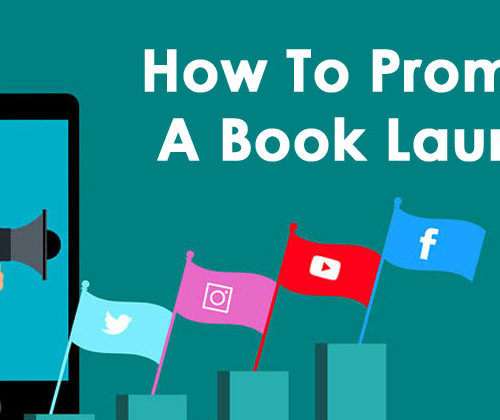
Usually, book reviews are written evaluations of a recently published book in any genre. Generally, around the 500 to 700-word mark, they offer a brief description of a text’s main elements while appraising the work’s overall strengths and weaknesses. Published book review mainly appear in newspapers, magazines, and academic journals. The reader is provided with an overview of the book itself and is told whether or not the reviewer would recommend the book to the reader. So book reviews in essence are the short take on the major themes of the book, its theme, plot, and characters.
What is the Goal of a Book Review?
Not too long ago book reviews were a regular appearance in every quality newspaper and many periodicals. They were important factors in whether or not a book would sell well. A review from a heavyweight critic could often be the deciding factor in whether a book became a bestseller or end up in low sales. However, in the last few decades, the book review’s influence has diminished considerably with many potential book buyers preferring to consult customer reviews on Amazon or sites like Goodreads. As a result, the book review’s appearance in traditional media has become less frequent.
Key take away for a book reviewer:
- Engage critically with a text
- Critically evaluate a text
- Respond personally to a range of different writing genres
- Focus on improving his own reading, writing, and thinking skills.
Book review: The Key Elements
Aspects of the book a reviewer may wish to take notes on in a work of fiction may include:
- Themes: What are the main themes of the book under consideration? Are there recurring motifs in the book? Is the exploration of the themes deep or on the surface only?
- Characters: Who are the main characters in the story? What are their believes and motivations? Are they convincingly reflected?
- Style: What are the key elements of the writer’s style? Does it fit into the wider literary world?
- Plot: What is the story’s main happening place? What is the main plot? How effectively is the rising action described? What are the subplots?
A book review generally begins with a summary of the work itself. However, it is important not to give too much away, too early. Spoilers need to be avoided. For nonfiction reviews, this may be a summary of the main arguments of the work, again, without giving too much detail away. In a work of fiction, a review will often summarise up to the rising action of the piece without going beyond to reveal too much.

The summary should also provide some perspectives for the reader. Given the nature of the purpose of a review, the reviewer needs to be mindful of the intended audience. Readers will most likely not have read the book in question and will require some attention. This is often done via introductions to the main characters, themes, primary arguments, etc. It helps the reader to gauge whether or not the book is of interest to them.
For a review to be effective the reviewer should:
1. Make It Personal
Book reviews are subjective. They are opinion pieces that come out of our experiences of life. A reviewer should link the work they are writing about to their own personal life within the context of the review. By making this personal connection to the work, reviewers contextualize their opinions for the readers and help them to understand whether the book will be of interest to them or not in the process.
2. Make It Universal
Just as it is important to show how the work relates to individual life, it is important to switch sides as well. Reviewers should endeavour to show how the ideas explored in the book relate to the wider world. They may be in the form of the universality of the themes in a work of fiction, or, the international implications for arguments elucidated in a work of nonfiction.
3. Support Opinions with Evidence
By its very nature, a book review is a subjective piece of writing. However, just because it is subjective does not mean that opinions do not need to be rationalized. The reviewers need to understand how to back up their opinions with various forms of evidence. Quotations, statistics, and the use of primary and secondary sources come in handy there.
Book Review-Edit and Revision:
As with any writing genre, reviewers should polish things up with review and revision at the end. It is critical to proofread and check for accurate spelling throughout, with particular attention to the author’s name, character names, publisher etc.
It is good practice to double-check their use of evidence and claims. Are statements supportive? Have the statistics been used correctly? Are the quotations accurate?

The discipline of writing book reviews offers opportunities to reviewers to develop their writing skills and exercise their critical faculties. Book reviews are valuable standalone activities and may serve as a part of a series of activities engaging with a central text. They may also serve as an effective springboard into later discussion of work based on the ideas and issues explored in a particular book. Though the book review does not hold the sway it once did in the minds of the reading public, it still serves as an effective mechanism to spread the word around.
A book review both evaluates and describes a work of fiction or non-fiction. It explains a book’s overall purpose, its structure, and style of narration. If it’s a fictional book, the reviewer pays main attention to the book’s setting, plot, characters, use of language, and voice. If the book falls into the category of nonfiction, the reviewer pays primary attention to the major points, the argument the author is putting forth, and also to the sources the author has drawn upon to back up his or her point of view.
Suggested Read – All You Need To Know About Book Trailer And Steps Involved In Making One
Video Book Reviews
The best way to promote a book is to get people talking about it, discussing it, and sharing it. And the easiest way to combine all of these is to have a video book review. A Video Book Review is an effective way to inform potential readers, reach a new audience, and an easy way to get feedback about your book. The key areas to discuss in a video book review are characters, themes, writing style, and plot. A brief excerpt that highlights the main event in the book is also included in a video book review. Main benefits of a video book review:
- The video is available to billions of active YouTube users
- It is much more engaging than other formats
- The YouTube video can be put on your website for a wider reach
- It is a quick and easy way for book bloggers to share content about your book
- The video can easily be shared on Facebook and Twitter to amplify its reach
- It is an effective way to get feedback about your book.
In an era where traditional book review platforms are losing their sheen, it’s time to get on with the time and select the medium that is suitable and widespread. There are newer and easy-to-use ways to enhance the range of your audience. Blogs, Video Book Reviews, Reviews by Influencers are all the tools prevalent in today’s age.

Related Post

Advantages of Working with Publicity
Book publicity services are often spoken with disdainful tones as




